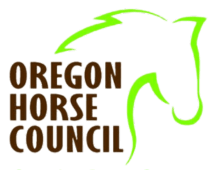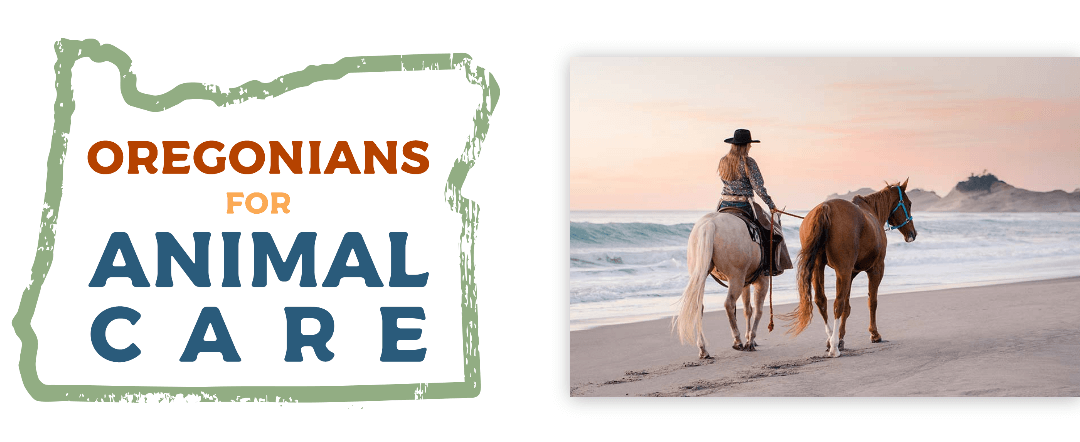Article original published in the Capital Press, by George Plaven, on June 13, 2021
SALEM — Signature gathering is underway for a controversial ballot measure in Oregon that, if passed by voters, would remove most exemptions for farming, ranching and hunting under the state’s animal abuse laws.
The Oregon Elections Division released a draft ballot title for Initiative Petition 13 on May 20 after verifying 1,085 sponsorship signatures. Petitioners now have until July 8 to collect 112,020 signatures required to place the initiative on the November 2022 ballot.
A coalition of 19 agriculture and outdoor sports groups, meanwhile, has banded together to oppose the measure.
“I have never seen an initiative that would have such an immediate and devastating impact on more Oregon families than IP13,” said Mary Anne Cooper, vice president of public policy for the Oregon Farm Bureau.
IP13, titled the Abuse, Neglect, and Assault Exemption Modification and Improvement Act, was filed Nov. 2, 2020 with the Oregon Secretary of State’s office. The chief petitioner is David Michelson, a Portland animal rights activist.
Under Oregon law, a person commits animal abuse if they “intentionally, knowingly or recklessly cause physical injury to an animal,” or “cruelly cause the death of an animal.”
Baked into the law, however, is an exemption for “good animal husbandry” — things like branding and dehorning cattle that are common on ranches.
Not only would IP13 erase that exemption, but it would classify breeding livestock as sexual abuse of an animal, a Class C felony. The measure would also strip away protections for hunting, fishing, rodeos, slaughtering livestock, wildlife management, pest control, scientific research and more.
IP13 does provide a few exemptions for killing an animal in cases of self-defense, processing livestock that have died a natural death or euthanasia performed by a veterinarian.
According to the Yes on IP13 campaign website, the measure doesn’t change the definition of abuse — rather it modifies existing laws to hold everyone to the same ethical standard.
”It would create a system in Oregon where farmers were no longer exempt from animal cruelty laws,” the campaign states. “It would require that animals be allowed to truly live a good life free from abuse, neglect and sexual assault.”
But opponents say the result would effectively turn farmers, ranchers, sportsmen and even teachers into criminals.
“Everyone from horse trainers to pet groomers to dairy farmers to anyone who kills a rat in their own home would become criminals under this measure,” Cooper said.
A dozen agricultural groups submitted comments on June 4 to Oregon Attorney General Ellen Rosenblum asking for amendments to the ballot’s draft language that more clearly communicates the effects of the measure.
The groups include the Oregon Farm Bureau, Oregon Cattlemen’s Association, Oregon Dairy Farmers Association, Northwest Chicken Council, Oregon Sheep Growers Association, Oregonians for Food and Shelter, Food Northwest, Livestock Marketing Association, Fur Commission USA, Oregon Horse Council, West Coast Seafood Processors Association and Friends of Family Farmers.
As written, they claim the draft ballot is under-inclusive and misleading, and does not accurately summarize all of IP13’s major effects.
“Oregon law prohibits killing or injuring animals but acknowledges that there are many necessary exceptions to protect the food supply, and rudimentary, widely accepted animal management and care practices, none of which Oregonians would likely expect should or would be criminalized,” the letter states.
Tammy Dennee, executive director of the Oregon Cattlemen’s Association, said IP13 makes it impossible for ranchers to protect their pets or livestock from predators, undermines food safety by outlawing rodent control in the food supply chain, and would force Oregonians to rely on out-of-state or overseas food suppliers.
Tami Kerr, executive director of the Oregon Dairy farmers Association, said the initiative is not about protecting animals, but outlawing farming.
”Preventative herd health practices shouldn’t be criminalized,” Kerr said. “Breeding practices that are safer for animals shouldn’t be criminalized.”
Hunting groups also submitted their own comments seeking to clarify the impacts of IP13 in the ballot language.
That coalition includes the Oregon Hunters Association, Rocky Mountain Elk Foundation, Wild Sheep Foundation, Oregon Chapter of Backcountry Hunters and Anglers, Oregon Trappers Association, Sportsmen’s Alliance and the Congressional Sportsmen’s Foundation.
Amy Patrick, outreach coordinator for the Oregon Hunters Association, said they are working closely with the farming and ranching groups as part of a broader effort to fight IP13.
”Because our messaging is slightly different, we are also building a coalition of sports groups to address the impacts specific to hunting, fishing, trapping and living a sustainable or rural lifestyle,” Patrick said. “The hope is to be additive in our messaging to what the Farm Bureau, Cattlemen and ag groups are putting out as well.”

